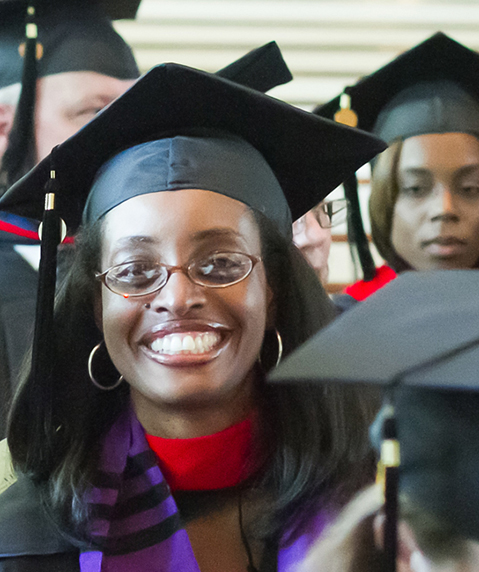Candler Scholarships
Candler’s scholarship program is among the most generous you’ll find because we’re committed to making a world-class theological education affordable. In 2023-24, with the support of generous donors, we awarded $6.3 million in financial aid, with 92% of all students and 100% of Master of Divinity students receiving scholarship assistance. In fact, students say the financial support they receive from Candler is one of the top five reasons they decided to enroll.
Availability and Coverage
Candler scholarships are available to students in the MDiv, MRL, MTS, ThM, and DMin programs, and 92% of students receive one. While some scholarships are based on denomination, affiliation with a United Methodist annual conference, or vocational intent, many scholarships are open to all students in these programs. Master of Divinity and Master of Theological Studies scholarships begin at 50% of tuition and range to full tuition plus stipend. MDiv students who are certified candidates for ordination in The United Methodist Church receive scholarships covering 100% of tuition.
Application Process
The best part? It’s incredibly easy to be considered for a Candler scholarship. Your application for admission doubles as your application for scholarships. Those who apply by their degree program’s priority deadline and complete the FAFSA will have the best chance of receiving support. Plus, if you apply by January 15, you’ll be considered for Leadership Candler, a unique, two-day campus visit event for prospective students in Master of Divinity, Master of Theological Studies, and Master of Religious Leadership programs.
Early Action Option for MDivs
Apply to Candler’s MDiv program by November 1 and you’ll receive an admission decision and an initial scholarship offer by December 15. Plus, you will still be considered for Candler’s biggest scholarship awards—Woodruff Fellowships and Dean and Faculty Scholarships—in January and February.

External Scholarships and Aid
Each year, Candler students secure nearly $1 million in external funding. With the help of our financial aid staff, our incredibly creative students look to their local churches, annual conferences, and even community organizations to help them pay for seminary—and many of them graduate debt-free!